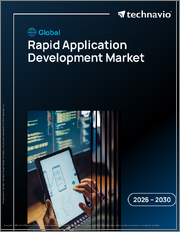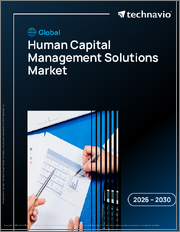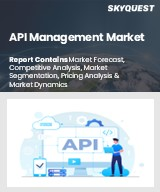
|
시장보고서
상품코드
1701999
클라우드 API 시장 : 유형별, 기업 규모별, 업종별, 지역별(2025-2033년)Cloud API Market Report by Type, Enterprise Size (Large Enterprises, Small and Medium Enterprises ), Industry Vertical, and Region 2025-2033 |
||||||
클라우드 API 세계 시장 규모는 2024년에 13억 2,580만 달러에 달했습니다. 향후 IMARC Group은 2033년까지 47억 2,930만 달러에 달하고, 2025-2033년 14.42%의 연평균 성장률(CAGR)을 보일 것으로 전망하고 있습니다. 세계 마이크로서비스 아키텍처의 채택 확대, 빅데이터 및 분석 솔루션의 보급, 하이브리드 및 멀티 클라우드 전략의 채택 확대 등이 시장 성장을 가속하는 주요 요인으로 작용할 것으로 보입니다.
클라우드 API(용도 프로그래밍 인터페이스)는 서로 다른 소프트웨어 용도 간의 다리 역할을 하며, 인터넷을 통해 서로 통신할 수 있도록 합니다. 클라우드 컴퓨팅의 맥락에서 이러한 API는 용도 및 서비스를 클라우드 플랫폼 및 리소스와 통합할 수 있게 해줍니다. 클라우드 API는 스토리지, 컴퓨팅 파워, 데이터베이스와 같은 클라우드 서비스에 접근하는 합리적인 방법을 제공하여 개발자가 클라우드에서 용도를 쉽게 구축, 배포, 관리할 수 있도록 도와줍니다. 요청과 응답이 어떻게 포맷되어야 하는지를 규정하는 일련의 규칙과 프로토콜에 의해 작동합니다. 이를 통해 개발자는 클라우드 인프라의 복잡한 세부 사항을 이해하지 않고도 클라우드 인프라를 최대한 활용할 수 있습니다. 클라우드 API를 통해 기업은 비용과 개발 시간을 줄이면서 운영을 확장하고, 보안을 강화하며, 효율성을 높일 수 있습니다.
클라우드 API 업계의 두드러진 원동력 중 하나는 마이크로서비스 아키텍처의 채택이 확대되고 있다는 점입니다. 이 아키텍처 스타일에서 복잡한 용도는 독립적으로 배포할 수 있는 서비스들의 집합체로 개발됩니다. 클라우드 API는 이러한 서비스 간의 통신을 촉진하는 커넥터 역할을 합니다. 비즈니스가 민첩성을 높이기 위해 노력함에 따라 모듈식 및 확장 가능한 솔루션의 필요성이 대두되고 있습니다. 이에 따라 사물 인터넷이 큰 견인력을 가지게 되면서 가전제품에서 산업기계에 이르기까지 상호 연결되는 장치의 수가 증가하고 있습니다. 이러한 환경에서는 클라우드 API가 필수적이며, 서로 다른 기기와 시스템을 연결하는 접착제 역할을 하고 있습니다. 이와는 별도로 데이터 기반 의사결정의 중요성이 높아지면서 빅데이터와 분석 솔루션이 확산되고 있습니다. 클라우드 API는 데이터베이스와 분석 툴을 클라우드 스토리지와 컴퓨팅 리소스에 연결하여 빠른 데이터 처리와 보다 정확한 분석을 촉진하는 데 중요한 역할을 하고 있습니다. 또한, 하이브리드 클라우드와 멀티 클라우드 전략의 채택이 확대되고 있어 시장 전망은 밝습니다.
클라우드 API 시장 동향/촉진요인:
디지털 전환을 위한 노력의 가속화
디지털 전환은 다양한 산업으로 확산되고 있으며, 기업들은 경쟁력을 유지하기 위해 클라우드 기반 솔루션을 도입해야 하는 상황에 직면해 있습니다. 기업의 업무와 데이터가 클라우드로 이동함에 따라 이러한 전환을 가능하게 하는 클라우드 API의 역할이 중요해지고 있습니다. 클라우드 API는 기존 레거시 시스템과 새로운 클라우드 서비스를 연결하는 강력하고 확장 가능한 방법을 제공합니다. 이러한 원활한 통합은 업무 효율성과 고객 경험 개선의 핵심입니다. 또한, 코로나19 사태는 디지털 전환의 촉매제 역할을 하고 있으며, 기업들은 원격 근무와 디지털 서비스 제공에 빠르게 적응해야 하는 상황입니다. 클라우드 API는 새로운 비즈니스 모델에 빠르게 적응하고 다양한 디지털 플랫폼 간의 상호 운용성을 촉진함으로써 이러한 변화를 가속화하는 데 도움을 주고 있습니다. 기업들이 디지털 전환 전략에 지속적으로 투자하면서 안정적이고 확장성이 뛰어난 클라우드 API에 대한 요구가 증가하고 있으며, 클라우드 API는 광범위한 클라우드 생태계의 핵심으로 자리 잡고 있습니다.
높아지는 보안에 대한 우려
상호연결이 심화되는 디지털 환경에서 안전한 데이터 트랜잭션의 중요성은 아무리 강조해도 지나치지 않습니다. 이에 따라 클라우드 API는 데이터가 용도과 서비스 간에 이동할 때 보안 프로토콜을 구현하는 데 있어 매우 중요한 역할을 합니다. 토큰 기반 인증, 데이터 암호화, 역할 기반 접근 제어와 같은 고급 기능은 안전한 통신을 보장하기 위해 클라우드 API에 내장되어 있는 경우가 많습니다. 사이버 위협이 고도화됨에 따라 기업들은 강력한 보안 조치의 필요성을 인식하게 되었고, 이는 안전하고 신뢰할 수 있는 클라우드 API에 대한 투자를 촉진하고 있습니다. 이와 함께 클라우드 API는 보안 계층을 추가하고 GDPR(EU 개인정보보호규정), HIPAA 등 다양한 규제 표준을 준수하는 데 필수적인 모니터링 및 감사 기능을 제공합니다. 기업들은 점점 더 엄격해지는 데이터 보호법 및 컴플라이언스 요건에 대응하기 위해 안전한 클라우드 API에 대한 수요가 증가하고 있으며, 이는 중요한 시장 성장 촉진요인으로 작용하고 있습니다.
운영의 확장성과 효율성의 필요성
기업이 성장함에 따라 업무의 복잡성과 확장 가능한 솔루션에 대한 필요성이 증가하고 있습니다. 클라우드 API는 큰 초기 비용 없이 업무를 확장할 수 있는 효과적인 방법을 제공합니다. 필요할 때만 클라우드 리소스를 사용할 수 있기 때문에 비용을 최적화할 수 있습니다. 이는 예산의 제약 속에서 사업을 운영하는 경우가 많지만, 성장에 따라 빠르게 확장할 수 있는 유연성이 필요한 스타트업과 중소기업에게 특히 유용합니다. 이와 동시에 클라우드 API는 자동화를 가능하게 함으로써 운영의 효율성을 높이는데도 기여합니다. 데이터 백업, 시스템 업데이트, 리소스 할당과 같은 일상적인 작업을 API를 통해 자동화함으로써 인적 자원을 보다 전략적인 업무에 투입할 수 있습니다. 운영의 견고성을 유지하면서 효율적으로 확장할 수 있는 능력은 경쟁적인 환경에 처한 기업에게 매우 중요합니다. 따라서 운영의 확장성과 효율성에 대한 요구는 클라우드 API 업계의 중요한 원동력이 되고 있습니다.
목차
제1장 서문
제2장 조사 범위와 조사 방법
- 조사 목적
- 이해관계자
- 데이터 소스
- 1차 정보
- 2차 정보
- 시장 추정
- 보텀업 접근
- 톱다운 접근
- 조사 방법
제3장 주요 요약
제4장 서론
- 개요
- 주요 업계 동향
제5장 세계의 클라우드 API 시장
- 시장 개요
- 시장 실적
- COVID-19의 영향
- 시장 예측
제6장 시장 분석 : 유형별
- SaaS API
- PaaS API
- IaaS API
- 크로스 플랫폼 API
제7장 시장 분석 : 기업 규모별
- 대기업
- 중소기업
제8장 시장 분석 : 업종별
- 헬스케어
- 은행, 금융서비스 및 보험(BFSI)
- IT 및 통신
- 제조
- 교육
- 미디어 및 엔터테인먼트
- 기타
제9장 시장 분석 : 지역별
- 북미
- 미국
- 캐나다
- 아시아태평양
- 중국
- 일본
- 인도
- 한국
- 호주
- 인도네시아
- 기타
- 유럽
- 독일
- 프랑스
- 영국
- 이탈리아
- 스페인
- 러시아
- 기타
- 라틴아메리카
- 브라질
- 멕시코
- 기타
- 중동 및 아프리카
- 시장 내역 : 국가별
제10장 SWOT 분석
- 개요
- 강점
- 약점
- 기회
- 위협
제11장 밸류체인 분석
제12장 Porter의 Five Forces 분석
- 개요
- 바이어의 교섭력
- 공급 기업의 교섭력
- 경쟁 정도
- 신규 진출업체의 위협
- 대체품의 위협
제13장 가격 분석
제14장 경쟁 구도
- 시장 구조
- 주요 기업
- 주요 기업 개요
- Amazon Web Services Inc.(Amazon.com Inc.)
- Broadcom Inc.
- Citrix Systems Inc.
- Dell Technologies Inc.
- Google LLC(Alphabet Inc.)
- International Business Machines Corporation
- Microsoft Corporation
- Oracle Corporation
- Rackspace Technology Inc.
- Salesforce Inc.
- SAP SE
- Tibco Software Inc.
The global cloud API market size reached USD 1,325.8 Million in 2024. Looking forward, IMARC Group expects the market to reach USD 4,729.3 Million by 2033, exhibiting a growth rate (CAGR) of 14.42% during 2025-2033. The growing adoption of microservices architecture across the globe, the widespread proliferation of big data and analytics solutions., and the increasing adoption of hybrid and multi-cloud strategies are among the key factors driving the market growth.
A Cloud API (Application Programming Interface) serves as a bridge between different software applications, allowing them to communicate with each other over the internet. In the context of cloud computing, these APIs enable the integration of applications and services with cloud platforms and resources. Cloud APIs offer a streamlined way to access cloud services such as storage, computing power, and databases, making it easier for developers to build, deploy, and manage applications in the cloud. They function through a set of rules and protocols, which dictate how requests and responses should be formatted. This allows developers to make the most of cloud infrastructure without having to understand its complex underlying details. By using cloud APIs, businesses can scale their operations, enhance security, and improve efficiency, all while reducing costs and development time.
One of the prominent drivers of the cloud API industry is the growing adoption of microservices architecture. In this architectural style, complex applications are developed as a collection of loosely coupled, independently deployable services. Cloud APIs serve as the connectors that facilitate communication between these services. As businesses strive to become more agile, the need for modular and scalable solutions has become more pronounced. Along with this, the Internet of Things has gained significant traction, with a growing number of devices from home appliances to industrial machines becoming interconnected. Cloud APIs are essential in this environment, serving as the glue that connects disparate devices and systems. Apart from this, the increasing importance of data-driven decision-making has led to the proliferation of big data and analytics solutions. Cloud APIs play a vital role in connecting databases and analytics tools to cloud storage and compute resources, facilitating quicker data processing and more accurate analytics. Moreover, the escalating adoption of hybrid and multi-cloud strategies is creating a positive market outlook.
Cloud API Market Trends/Drivers:
Accelerating Digital Transformation Initiatives
Digital transformation is sweeping across various industries, prompting businesses to adopt cloud-based solutions to remain competitive. As companies increasingly move their operations and data to the cloud, the role of cloud APIs in enabling these transitions becomes crucial. Cloud APIs offer a robust and scalable way to connect existing legacy systems with new cloud services. This seamless integration is key to driving operational efficiency and improving customer experiences. Additionally, the COVID-19 pandemic has acted as a catalyst for digital transformation, forcing businesses to adapt rapidly to remote work and digital service delivery. Cloud APIs have been instrumental in this accelerated shift, allowing quick adjustments to new business models and facilitating interoperability between various digital platforms. As organizations continue to invest in digital transformation strategies, the need for reliable and scalable cloud APIs will only grow, making them a cornerstone in the broader cloud ecosystem.
Heightening Security Concerns
In an increasingly interconnected digital landscape, the importance of secure data transactions cannot be overstated. Along with this, cloud APIs play a pivotal role in enforcing security protocols when data moves between applications and services. Advanced features, including token-based authentication, data encryption, and role-based access control are often built into cloud APIs to ensure secure communication. As cyber threats become more sophisticated, businesses are recognizing the need for robust security measures, and this is driving investments in secure and reliable cloud APIs. In confluence with this, cloud APIs add a layer of security and enable monitoring and auditing features that are essential for compliance with various regulatory standards, such as GDPR, HIPAA, and others. As organizations deal with increasingly stringent data protection laws and compliance requirements, the demand for secure cloud APIs is poised to rise, making it a significant market driver.
Need for Operational Scalability and Efficiency
As businesses grow, the complexity of their operations and the need for scalable solutions is increasing. Cloud APIs offer an effective way to scale operations without significant upfront costs. They enable businesses to tap into cloud resources only as needed, thereby optimizing costs. This is especially beneficial for startups and SMEs, who often operate under budget constraints but need the flexibility to scale quickly as they grow. In confluence with this, cloud APIs also contribute to operational efficiency by enabling automation. Routine tasks, including data backup, system updates, and resource allocation can be automated using APIs, freeing up human resources for more strategic tasks. The ability to scale efficiently while maintaining operational robustness is critical for businesses in a competitive landscape. Therefore, the need for operational scalability and efficiency is a key driver for the cloud API industry.
Cloud API Industry Segmentation:
Breakup by Type:
- SaaS APIs
- PaaS APIs
- IaaS APIs
- Cross-platform APIs
SaaS APIs holds the majority of the market share
Software as a Service (SaaS) APIs are a distinct segment within the broader cloud API industry, and they have unique market drivers that fuel their growth. One key driver is the increasing adoption of SaaS applications in business operations. Organizations are integrating multiple SaaS solutions, such as CRM, ERP, and marketing automation tools to streamline their processes. SaaS APIs enable seamless integration between these applications and allow businesses to create a unified, efficient workflow. This eliminates data silos and enables real-time data sharing among departments, leading to improved operational efficiency and decision-making. Another significant driver is the need for customization and flexibility in SaaS applications. Off-the-shelf SaaS solutions may not meet the unique requirements of every business. In addition, APIs allow for easy customization, empowering organizations to tailor the software according to their specific needs. Furthermore, security and compliance are crucial factors, especially for businesses in regulated industries. SaaS APIs often come with built-in security features, ensuring secure data transmission between integrated applications. As companies continue to recognize the benefits of SaaS integration in enhancing productivity, security, and customization, the demand for SaaS APIs in the cloud API industry is expected to rise significantly.
Breakup by Enterprise Size:
- Large Enterprises
- Small and Medium Enterprises (SMEs)
Large enterprises account for the majority of the market share
For large enterprises, the market drivers behind the adoption of cloud APIs are multifaceted and rooted in both operational and strategic imperatives. One of the primary drivers is the need for digital transformation at scale. Large organizations often have complex, legacy IT infrastructures that require modernization. Cloud APIs facilitate the seamless integration of legacy systems with new cloud-based solutions, enabling a smoother transition and operational continuity. Another significant driver is globalization. As large enterprises expand geographically, they need to standardize their IT operations across multiple locations. Cloud APIs allow for this standardization, enabling businesses to operate cohesively on a global scale. In confluence with this, data analytics and business intelligence are also key considerations. Large enterprises generate and process vast amounts of data. Cloud APIs provide the connectivity needed for powerful analytics tools to access this data in real-time, driving data-driven decision-making. Additionally, compliance and security are paramount for large organizations, especially those in regulated industries. Cloud APIs offer robust security features, helping enterprises meet regulatory requirements.
Breakup by Industry Vertical:
- Healthcare
- BFSI
- IT and Telecommunication
- Manufacturing
- Education
- Media and Entertainment
- Others
Healthcare holds the majority of the market share
In the healthcare sector, cloud APIs are increasingly becoming vital tools, driven by several market forces. One of the primary drivers is the need for interoperability between various healthcare systems. Cloud APIs allow for seamless integration of these disparate systems, facilitating secure and efficient data exchange. This is particularly important for patient care, where timely access to accurate information can be life-saving. Another critical driver is regulatory compliance. In confluence with this, cloud APIs designed for healthcare often come with built-in security features that help organizations meet these compliance standards. Additionally, the growing adoption of telemedicine and remote patient monitoring technologies, accelerated by the COVID-19 pandemic, has amplified the need for robust, secure, and scalable cloud APIs to handle data transmission and integration. These collective market drivers make cloud APIs increasingly indispensable in modern healthcare infrastructures.
Breakup by Region:
- North America
- United States
- Canada
- Asia Pacific
- China
- Japan
- India
- South Korea
- Australia
- Indonesia
- Others
- Europe
- Germany
- France
- United Kingdom
- Italy
- Spain
- Russia
- Others
- Latin America
- Brazil
- Mexico
- Others
- Middle East and Africa
North America exhibits a clear dominance, accounting for the largest cloud API market share
The market research report has also provided a comprehensive analysis of all the major regional markets, which include North America (the United States and Canada); Asia Pacific (China, Japan, India, South Korea, Australia, Indonesia, and others); Europe (Germany, France, the United Kingdom, Italy, Spain, Russia, and others); Latin America (Brazil, Mexico, and others); and the Middle East and Africa. According to the report, North America exhibits the largest segment.
In North America, the cloud API industry is experiencing robust growth, fueled by the region's advanced technological infrastructure and high rate of digital adoption among businesses and consumers. This creates fertile ground for cloud services, which in turn drives demand for cloud APIs to facilitate integration, scalability, and functionality. Another key driver is the strong presence of leading cloud service providers and technology companies in the region, which not only drives competition but also innovation in cloud API offerings. Cybersecurity concerns, particularly in sectors, such as finance and healthcare, are also leading to increased investment in secure and reliable cloud APIs. North American businesses are often at the forefront of compliance requirements, such as GDPR, CCPA, and HIPAA, making robust API security features a necessity. Additionally, the rise of remote work and digital transformation strategies, accelerated by the COVID-19 pandemic, has stimulated the need for cloud APIs that enable seamless, secure, and efficient operational transitions.
Competitive Landscape:
The key players are continuously innovating and expanding their offerings. They invest in research and development to introduce new features, improve performance, and enhance security. Along with this, scalability is a key focus for companies in this market. They are optimizing their APIs to handle increasing workloads and traffic, ensuring that businesses can seamlessly scale their applications. With the growing importance of data security, companies in this sector are dedicated to enhancing the security features of their APIs. This includes encryption, authentication, and authorization mechanisms. In addition, cloud API providers are focusing on cost optimization, offering flexible pricing models and tools to help businesses monitor and control their API usage costs effectively. Therefore, this is significantly supporting the market. In addition, brands are actively engaged in educating the market about the benefits and use cases of their cloud APIs, positioning themselves as experts in their respective domains. Furthermore, collaborations with other technology companies and platforms are contributing to the market.
The market research report has provided a comprehensive analysis of the competitive landscape in the market. Detailed profiles of all major companies have also been provided. Some of the key players in the market include:
- Amazon Web Services Inc. (Amazon.com Inc.)
- Broadcom Inc.
- Citrix Systems Inc.
- Dell Technologies Inc.
- Google LLC (Alphabet Inc.)
- International Business Machines Corporation
- Microsoft Corporation
- Oracle Corporation
- Rackspace Technology Inc.
- Salesforce Inc.
- SAP SE
- Tibco Software Inc.
Key Questions Answered in This Report
- 1.What was the size of the global cloud API market in 2024?
- 2.What is the expected growth rate of the global cloud API market during 2025-2033?
- 3.What are the key factors driving the global cloud API market?
- 4.What has been the impact of COVID-19 on the global cloud API market?
- 5.What is the breakup of the global cloud API market based on the type?
- 6.What is the breakup of the global cloud API market based on the enterprise size?
- 7.What is the breakup of the global cloud API market based on industry vertical?
- 8.What are the key regions in the global cloud API market?
- 9.Who are the key players/companies in the global cloud API market?
Table of Contents
1 Preface
2 Scope and Methodology
- 2.1 Objectives of the Study
- 2.2 Stakeholders
- 2.3 Data Sources
- 2.3.1 Primary Sources
- 2.3.2 Secondary Sources
- 2.4 Market Estimation
- 2.4.1 Bottom-Up Approach
- 2.4.2 Top-Down Approach
- 2.5 Forecasting Methodology
3 Executive Summary
4 Introduction
- 4.1 Overview
- 4.2 Key Industry Trends
5 Global Cloud API Market
- 5.1 Market Overview
- 5.2 Market Performance
- 5.3 Impact of COVID-19
- 5.4 Market Forecast
6 Market Breakup by Type
- 6.1 SaaS APIs
- 6.1.1 Market Trends
- 6.1.2 Market Forecast
- 6.2 PaaS APIs
- 6.2.1 Market Trends
- 6.2.2 Market Forecast
- 6.3 IaaS APIs
- 6.3.1 Market Trends
- 6.3.2 Market Forecast
- 6.4 Cross-platform APIs
- 6.4.1 Market Trends
- 6.4.2 Market Forecast
7 Market Breakup by Enterprise Size
- 7.1 Large Enterprises
- 7.1.1 Market Trends
- 7.1.2 Market Forecast
- 7.2 Small and Medium Enterprises (SMEs)
- 7.2.1 Market Trends
- 7.2.2 Market Forecast
8 Market Breakup by Industry Vertical
- 8.1 Healthcare
- 8.1.1 Market Trends
- 8.1.2 Market Forecast
- 8.2 BFSI
- 8.2.1 Market Trends
- 8.2.2 Market Forecast
- 8.3 IT and Telecommunication
- 8.3.1 Market Trends
- 8.3.2 Market Forecast
- 8.4 Manufacturing
- 8.4.1 Market Trends
- 8.4.2 Market Forecast
- 8.5 Education
- 8.5.1 Market Trends
- 8.5.2 Market Forecast
- 8.6 Media and Entertainment
- 8.6.1 Market Trends
- 8.6.2 Market Forecast
- 8.7 Others
- 8.7.1 Market Trends
- 8.7.2 Market Forecast
9 Market Breakup by Region
- 9.1 North America
- 9.1.1 United States
- 9.1.1.1 Market Trends
- 9.1.1.2 Market Forecast
- 9.1.2 Canada
- 9.1.2.1 Market Trends
- 9.1.2.2 Market Forecast
- 9.1.1 United States
- 9.2 Asia-Pacific
- 9.2.1 China
- 9.2.1.1 Market Trends
- 9.2.1.2 Market Forecast
- 9.2.2 Japan
- 9.2.2.1 Market Trends
- 9.2.2.2 Market Forecast
- 9.2.3 India
- 9.2.3.1 Market Trends
- 9.2.3.2 Market Forecast
- 9.2.4 South Korea
- 9.2.4.1 Market Trends
- 9.2.4.2 Market Forecast
- 9.2.5 Australia
- 9.2.5.1 Market Trends
- 9.2.5.2 Market Forecast
- 9.2.6 Indonesia
- 9.2.6.1 Market Trends
- 9.2.6.2 Market Forecast
- 9.2.7 Others
- 9.2.7.1 Market Trends
- 9.2.7.2 Market Forecast
- 9.2.1 China
- 9.3 Europe
- 9.3.1 Germany
- 9.3.1.1 Market Trends
- 9.3.1.2 Market Forecast
- 9.3.2 France
- 9.3.2.1 Market Trends
- 9.3.2.2 Market Forecast
- 9.3.3 United Kingdom
- 9.3.3.1 Market Trends
- 9.3.3.2 Market Forecast
- 9.3.4 Italy
- 9.3.4.1 Market Trends
- 9.3.4.2 Market Forecast
- 9.3.5 Spain
- 9.3.5.1 Market Trends
- 9.3.5.2 Market Forecast
- 9.3.6 Russia
- 9.3.6.1 Market Trends
- 9.3.6.2 Market Forecast
- 9.3.7 Others
- 9.3.7.1 Market Trends
- 9.3.7.2 Market Forecast
- 9.3.1 Germany
- 9.4 Latin America
- 9.4.1 Brazil
- 9.4.1.1 Market Trends
- 9.4.1.2 Market Forecast
- 9.4.2 Mexico
- 9.4.2.1 Market Trends
- 9.4.2.2 Market Forecast
- 9.4.3 Others
- 9.4.3.1 Market Trends
- 9.4.3.2 Market Forecast
- 9.4.1 Brazil
- 9.5 Middle East and Africa
- 9.5.1 Market Trends
- 9.5.2 Market Breakup by Country
- 9.5.3 Market Forecast
10 SWOT Analysis
- 10.1 Overview
- 10.2 Strengths
- 10.3 Weaknesses
- 10.4 Opportunities
- 10.5 Threats
11 Value Chain Analysis
12 Porters Five Forces Analysis
- 12.1 Overview
- 12.2 Bargaining Power of Buyers
- 12.3 Bargaining Power of Suppliers
- 12.4 Degree of Competition
- 12.5 Threat of New Entrants
- 12.6 Threat of Substitutes
13 Price Analysis
14 Competitive Landscape
- 14.1 Market Structure
- 14.2 Key Players
- 14.3 Profiles of Key Players
- 14.3.1 Amazon Web Services Inc. (Amazon.com Inc.)
- 14.3.1.1 Company Overview
- 14.3.1.2 Product Portfolio
- 14.3.1.3 SWOT Analysis
- 14.3.2 Broadcom Inc.
- 14.3.2.1 Company Overview
- 14.3.2.2 Product Portfolio
- 14.3.3 Citrix Systems Inc.
- 14.3.3.1 Company Overview
- 14.3.3.2 Product Portfolio
- 14.3.3.3 Financials
- 14.3.3.4 SWOT Analysis
- 14.3.4 Dell Technologies Inc.
- 14.3.4.1 Company Overview
- 14.3.4.2 Product Portfolio
- 14.3.4.3 Financials
- 14.3.4.4 SWOT Analysis
- 14.3.5 Google LLC (Alphabet Inc.)
- 14.3.5.1 Company Overview
- 14.3.5.2 Product Portfolio
- 14.3.5.3 SWOT Analysis
- 14.3.6 International Business Machines Corporation
- 14.3.6.1 Company Overview
- 14.3.6.2 Product Portfolio
- 14.3.6.3 Financials
- 14.3.6.4 SWOT Analysis
- 14.3.7 Microsoft Corporation
- 14.3.7.1 Company Overview
- 14.3.7.2 Product Portfolio
- 14.3.7.3 Financials
- 14.3.7.4 SWOT Analysis
- 14.3.8 Oracle Corporation
- 14.3.8.1 Company Overview
- 14.3.8.2 Product Portfolio
- 14.3.8.3 Financials
- 14.3.8.4 SWOT Analysis
- 14.3.9 Rackspace Technology Inc.
- 14.3.9.1 Company Overview
- 14.3.9.2 Product Portfolio
- 14.3.10 Salesforce Inc.
- 14.3.10.1 Company Overview
- 14.3.10.2 Product Portfolio
- 14.3.10.3 Financials
- 14.3.10.4 SWOT Analysis
- 14.3.11 SAP SE
- 14.3.11.1 Company Overview
- 14.3.11.2 Product Portfolio
- 14.3.11.3 Financials
- 14.3.11.4 SWOT Analysis
- 14.3.12 Tibco Software Inc.
- 14.3.12.1 Company Overview
- 14.3.12.2 Product Portfolio
- 14.3.12.3 SWOT Analysis
- 14.3.1 Amazon Web Services Inc. (Amazon.com Inc.)



















